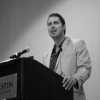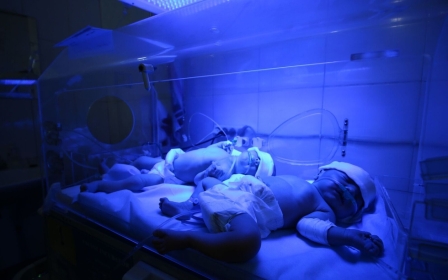The Muslim aid workers in Syria no longer welcomed home

Aleppo is now ground zero in the fight between Syria's Russian-backed Assad regime and the kaleidoscope of factions that comprise the rebel insurgency in the country.
At the time of writing, pro-Syrian forces have surrounded the eastern side of the city, where at least 300,000 inhabitants remain, almost certain to face a similar fate to the tens of thousands who were starved, bombed and exhausted to death in Homs a year or two earlier.
Doctors besieged in the city describe “horrifying conditions”. According to some accounts, less than 30 doctors and medical staff remain in a city that requires hundreds more. Other reports describe doctors working around the clock, surviving on one to two hours of sleep and only a handful of dried dates.
Since the civil war began five years ago, more than 700 medical personnel have been killed, while Russian-Assad air strikes were carried out against five hospitals in the last week of July alone.
Remarkably and mercifully, there are people who are still willing to give up everything, and put the comfort and security of their "Western" lives on the line to provide urgently needed humanitarian aid to those in the direct line of fire from Assad’s barrel bombs and Russia’s submarine-launched missiles.
Like firemen who willingly walk into a burning building to save lives, these aid workers are the bravest of the brave. They are heroes in every objective sense of the word.
But Western governments have afforded a different name for some of these aid workers. From the viewpoint of the United Kingdom, Australia, France and the United States, some of the Muslims who travel to Syria to provide humanitarian relief are terrorists.
I interviewed Tauqir Sharif, a British Muslim who travelled to Syria with his wife in 2012. His story and bravery will change much of the preconceived perceptions that many have about those who travel from Western countries to the Levant. In short, not all are terrorists. In fact, many are the opposite of that.
Sharif is not in Syria to wage "Jihad," and he’s not there on a deranged search for self-identity or martyrdom. He’s there because, as an activist, he sees injustice and suffering. He’s there to provide aid at a time when everyone else has turned their back.
“After the Holocaust and the genocide in Srebrenica, the world promised 'never again.' Well, I’m here to say, 'Never again,' and like Malcolm X said, 'If you stand for nothing, you will fall for anything,'" Sharif told me.
Syria is not the first conflict Sharif has thrown himself head first into. In 2010, he was aboard the Mavi Marmara, a Gaza-bound aid ship, when Israeli commandos hijacked the vessel, killing nine of his fellow activists.
"I saw people shot in front of me. I carried them down to the deck. We were processed in a special facility. I was strip-searched, spat on by guards,” Sharif told The Guardian in 2014.
When Sharif first got to Syria, he joined the UK-based aid agency One Nation. More recently Sharif has established Live Updates From Syria, an aid organisation that goes deeper into the conflict zone, where he says, “We go to places where other [Western] aid organisations are afraid to go or don’t go. Our job is to go where the people are the most destitute…we provide primary aid, food boxes, orphan programmes, camps for widows, schools and nurseries.”
Sharif said the aid group’s current location is in Aleppo's countryside, “closest to the frontline”. He would only refer to his specific location as “Hospital X” and said, “We know it’s not a case of 'if' but 'when' Assad will bomb this hospital.”
The conditions at “Hospital X” can only be described in terms of your worst nightmare. “Yesterday, rebels shot down a Russian helicopter. When it was down, people ran towards the crash site, but when they got close, Russia started cluster bombing the place,” Sharif told me. “One 12-year-old, and he’s downstairs right now [in the hospital], he had shrapnel hit him on his penis. These are life changing injuries.”
To make matters even more unbearable, Sharif described operations, including amputations, performed with minimal, if any, anaesthesia. “We routinely send people with mangled bodies home," he said.
As for returning home himself, Sharif explained that a return to the UK is an impossible dream wherein the so-called “humanitarian corridors” are merely propagandised names for “sniper corridors”, and the British government and security agencies have deemed him, more or less, a terrorist suspect – based on the simple logic he is a Muslim, has a beard and is in Syria.
British intelligence has also identified Sharif as a "person of interest", but they’ve also blocked a passport application for his daughter, who was born in Turkey in 2013.
"We've come across countless cases of passport confiscations and citizenship revocations in recent years, but refusing to give a newborn baby its basic rights marks a new low,” Amanda Thomas-Johnson, a spokesman for the civil rights advocacy group CAGE, told Al Jazeera.
"This is someone who is providing a lifeline to Syrians who have been abandoned by the international community, including Britain, but the government is sending out a strong message that if you help the Syrian people caught in the middle of barrel bombs, wholesale massacre and coalition bombing, they will make your life very difficult indeed."
Clearly, Western governments, particularly in Europe, have justifiable reasons for fearing the return of those who have travelled to fight alongside extremist groups, such as the Islamic State (IS) group and Jabhat Fateh al-Sham (nee Nusra Front), but, as many counter-terrorism experts have observed, our most potent weapon against terrorism are the very laws and civil liberties the terrorists wish to subvert.
“It is vital to understand that human rights protection is not an optional extra in the fight against terrorism. It is an essential weapon or asset in the protection of democracy,” notes renowned terrorism expert Paul Wilkinson.
Sharif told me there are very few Westerners he’s aware of in Aleppo, but said he is accompanied in the northern city by Australian teenager Oliver Bridgeman, who can be seen in this video helping Syrians protect themselves from Russian air strikes.
Earlier this year, the Australian government cancelled Bridgeman’s passport and issued an international arrest warrant for him, accusing the 19-year-old Muslim of engaging in hostile activities in a hostile country.
“I saw the assessment on why they cancelled my passport and obviously when I look at what they said it's absolutely ridiculous," Bridgeman said. "Basically, they were talking about my aid work here. [The claims] included that they thought I was going to participate in political violence, which is obviously not true.”
Effectively, Bridgeman is trapped in a war zone, and is unable to cross the border into Turkey, which in all likelihood serves as his death warrant, making Bridgeman a victim of Australia’s controversial 2014 legislation titled the Foreign Fighters Act – a counterterrorism bill that criminalises travel to Iraq and Syria.
His situation turns the longstanding legal logic of "innocent until proven guilty" on its head – insofar as an Australian aid worker who travels to Syria to provide humanitarian relief, such as Bridgeman, is found guilty without evidence of wrongdoing – thus violating international treaties that protect freedom of movement, presumed innocence, and a fair trial.
As a result of Western intransigence, Syria is in urgent need of selfless individuals such as Sharif and Bridgeman, who out of a sense of religious duty have risked all to help others. But the combination of Islamophobia and hyper-counterterrorism legislation serves to not only punish those who are willing to run into a burning building, but also undermines the very democratic values we aim to protect.
- CJ Werleman is the author of Crucifying America (2013), God Hates You. Hate Him Back (2009), and Koran Curious (2011), and he is the host of Foreign Object. Follow him on twitter: @cjwerleman
The views expressed in this article belong to the author and do not necessarily reflect the editorial policy of Middle East Eye.
Photo: A Syrian man cries as rescuers look for victims under the rubble of a collapsed building following a reported air strike on the rebel-held neighbourhood of Sakhur in the northern city of Aleppo on 19 July 2016 (AFP).
This article is available in French on Middle East Eye French edition.
Stay informed with MEE's newsletters
Sign up to get the latest alerts, insights and analysis, starting with Turkey Unpacked
Middle East Eye delivers independent and unrivalled coverage and analysis of the Middle East, North Africa and beyond. To learn more about republishing this content and the associated fees, please fill out this form. More about MEE can be found here.





